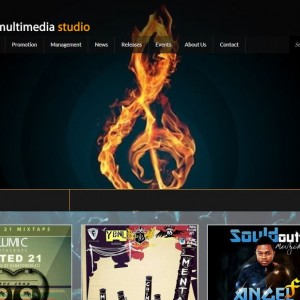
The Biggest Social Marketing Mistakes Your Company is Making
The following is the transcript of a Q&A between the University of Vermont Continuing & Distance Education and myself, as an instructor in the UVM Digital Marketing Fundamentals Program. The discussion centered on the dos and don’ts of leveraging social media as a marketing channel.
Generally speaking, which social media channel do you think businesses tend to overlook and not spend enough time on?
In the B2B space, that would be Quora and Glassdoor. Buyers have questions early in the buying process, and they often will go to Quora before they have a specific solution in mind, which makes it a great opportunity to jump upstream earlier in their buyer journey. For this platform to be effective, though, you really need to know your buyer inside and out. You’re trying to find out what questions they’re asking, sometimes even before they know what they’re looking for.
Glassdoor is the opposite and is very useful for the later stages of that same buyer journey. Once I have a short list of two or three companies that I am considering to solve my problem, I want to see what it’s like working with those companies. Glassdoor is mostly comprised of ratings and reviews from former employees, so it’s a very transparent way of finding out how a company is run and what people like or dislike about working with them. This can make or break the decision to go with a firm at the very end of the buying process.
Of course it depends on the industry, but after Facebook, LinkedIn and Twitter, which channel would you recommend to a business? Pinterest, Instagram, YouTube?
Yes, it certainly depends on the industry, but as a rule of thumb, B2C businesses need to take a look at Pinterest, simply due to the sheer traffic that can be driven through that community to your website. Pinterest may not be where your customers are spending large chunks of time, though, so you always need to do your research up front before investing time and energy in growing a community on these generally secondary social platforms.
Can you talk about some of the most important elements of creating a social media strategy?
More than anything, a good social marketing strategy, like any marketing strategy, is reliant on you knowing your buyer. If you know what their pains are, what questions they have, what solutions they’ve explored in the past, who influences them, and in what social communities they conduct their research, then you have a foundation from which to build your marketing strategy.
How many social media channels is too many for a business? Should they be doing more with less?
This is totally dependent on a company’s resources, bandwidth, and results. I always recommend having an “innovation budget”—which can be made up of time, not necessarily money—and use that ‘budget’ to test new channels and communities. If they can efficiently and effectively translate into qualified traffic, then they justify a deeper look.
The bottom line, though, is that everything needs to be measurable. If you’re not measuring your return against your investment, then you have no way of knowing which community may not be worth your time and energy, or which community might be a rising star that requires more attention.
If a company isn’t gaining much traction in terms of engagement, what do they need to do improve their social media presence?
Traction is a good word for it—how a firm measures traction will vary based on their goal. If they have a finely tuned content marketing machine, then qualified traffic and leads will be the traction indicator. If the machine is not finely tuned, then fuzzier metrics, like site traffic and engagement, may be justified.
The numbers that represent traction, therefore, need to be analyzed with that lens. If you’re only looking at engagement metrics, such as likes, shares, and comments, then you can optimize the creative, copy, messaging, timing, targeting, etc., to try and improve those numbers.
If you’re looking at leads as a function of traffic, then you might need to optimize the method of qualifying the lead, the information that you’re capturing about the lead, timing of follow up, and so on.
Can you list 3 of the biggest social media mistakes you see companies make?
1. Not knowing what makes their audiences tick. If the message is off, then nobody will get far enough to understand the value of your product or service.
2. Focusing on the how, rather than the why. If you understand why you’re building a community of customers, users, buyers, employees, advocates, then the how will naturally come to the surface. If you start with how—tactics—then you can easily get caught in a futile optimization loop that’s akin to moving the deck chairs around on the Titantic, or waste endless time chasing the next platform, app, or social community.
3. Trying to make something viral. Don’t do it. Don’t ask someone to do it for you. Create amazing content, and you will create social spread. There is no magic formula for virality, and anyone who tells you there is lying to you.
Any advice to a company who is hiring a social media/community manager? What should they be looking for in a candidate?
Personally, I hate the term “Community Manager” because it sounds mundane, when in reality, it’s one of the most exciting and impactful marketing positions in the firm. You’re on the front lines, talking with customers, influencers, the media, and other employees. To your customers. you represent the brand in the exact same way that a Super Bowl commercial does.
At Socialight Media, we have a team of community marketers: experts in real-time engagement; chameleons with brand guidelines, voice, and tone; specialists in measuring and optimizing their tactics on the fly.
If you’re hiring an in-house community marketer, you should look for extreme proficiency in writing and communication, a sense of humor, zero ego, a high degree of empathy, and a natural curiosity that feeds their desire to create the best content, provide the best answer, or find just the right resource for the community.
Rf: Jed Singer








